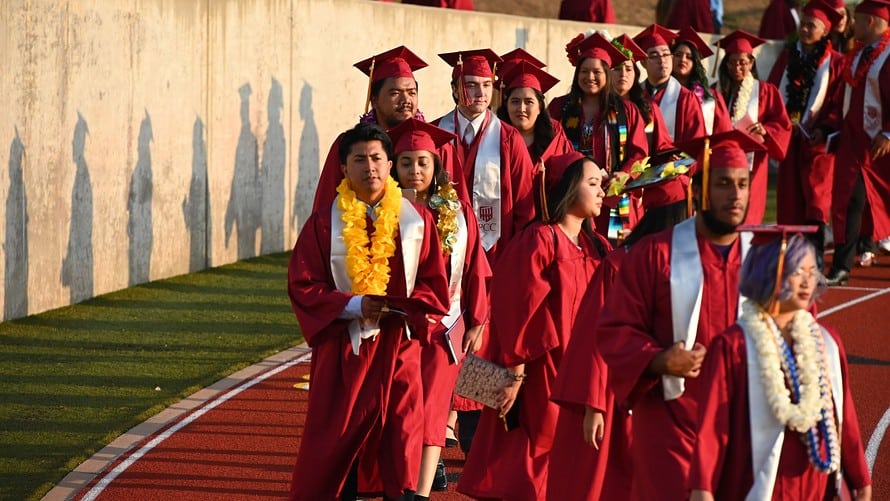
The acronym “FAFSA” trended on social media Friday as some students who recently completed the Free Application for Federal Student Aid worried — incorrectly — that filling out the form had made them eligible to be drafted into the military.
Interest in the topic surged after a U.S. drone strike ordered by President Trump killed Iranian military leader Qassem Soleimani, leading to fears of possible military conflict with Iran.
One alarmed observer wrote on Twitter TWTR, -2.41% : “FYI: If any of you filled out a FAFSA form to apply for student loans, you are registered in the selective service. That’s pretty damn near every millenial and Gen Zer.” Another wondered why the U.S. has an all-volunteer military if “they trick you into Selective Service System on #FAFSA.”
Those concerns were misplaced: With a few exceptions, males in the U.S. must register with the Selective Service when they turn 18 regardless of whether they fill out the FAFSA. That’s been the law of the land since 1917. Failing to register for Selective Service is a felony punishable by a fine of up to $250,000 or a prison term of up to five years, according to the Selective Service website. But the U.S. hasn’t drafted people into the military since 1973, when the Vietnam War was ending.
“That’s very alarming that people are thinking they’re going to be drafted if they filled out a FAFSA,” said Karen McCarthy, the director of policy analysis for the National Association of Student Financial Aid Administrators (NASFAA), a nonprofit that advocates for increased student access to college. “Filling out a FAFSA doesn’t register anybody for selective service.”
The Selective Service said on its official Twitter account Friday morning that its website was experiencing high traffic volume “due to the spread of misinformation.” (The agency could not be reached for comment immediately because its website was down.)
“The Selective Service System is conducting business as usual,” the account tweeted. “In the event that a national emergency necessitates a draft, Congress and the President would need to pass official legislation to authorize a draft.”
But there is one key point FAFSA applicants should be aware of: If they don’t register with Selective Service between the ages of 18 and 25, they’re ineligible for federal student aid.
The U.S. Department of Education checks to make sure that every male student who fills out the FAFSA has also registered for Selective Service. If the student was legally required to register for Selective Service but never did it, their school will be notified and federal funds won’t be released, McCarthy said.
That requirement has taken on new significance as the average age of new college students has crept up. Some 38% of undergraduate students were over 25 in 2017.
There are cases in which schools can decide to release funds even if the student didn’t register for Selective Service, McCarthy noted. But schools are only allowed to do that if the student can prove they didn’t knowingly break the law by not registering. For example, a student who didn’t live in the U.S. between the ages of 18 and 25 wouldn’t have been required to register.
NASFAA has long advocated against tying federal student aid to Selective Service status, McCarthy said. The group has also lobbied against a question on the FAFSA about whether the applicant has had any drug-related criminal convictions. Both questions have nothing to do with whether a student is eligible for federal student aid, McCarthy said.
“Questions like, ‘Have you previously defaulted on a student loan?’ are fine,” McCarthy said. “But some of these other requirements we see as extraneous. Everyone is interested in making the FAFSA simpler, so we would love to see those eliminated.”
Advocates have long argued for streamlining the FAFSA, in part because they believe more students would apply for aid if the form were simpler.
Students routinely leave money on the table by failing to fill out the FAFSA: In 2018, more than half of high school students (52%) were eligible for Pell Grants, a federal grant for low-income students, but more than a third (37%) of all high school schools didn’t fill out the FAFSA. The 661,000 students who didn’t claim their Pell Grant money missed out on $2.6 billion in free money for college, according to a study by the personal-finance website NerdWallet.
Failing to register for Selective Service can also render men ineligible to enroll at some public colleges, and in some states, make them unable to get a driver’s license or apply for a federal or state job, according to reporting by the Washington Post and USA Today.
